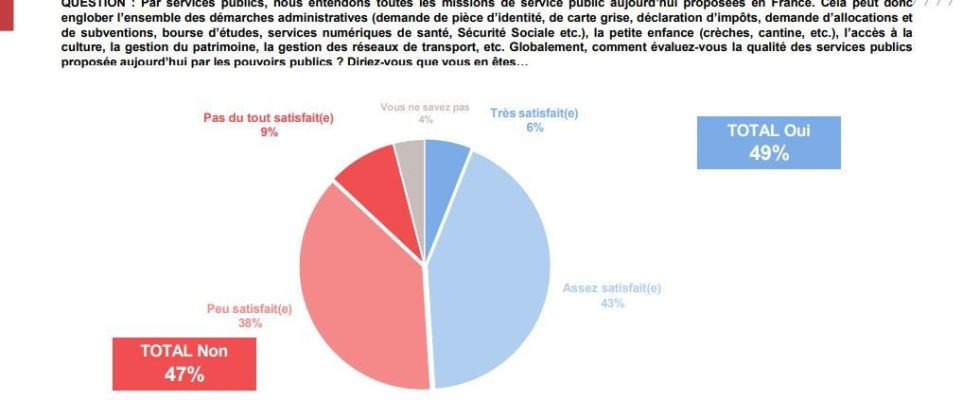The French administration, this large multifunction liner sometimes “inoperative”, sometimes “inaccessible” and often “incomprehensible”… It is the highest French administrative court that says so. This Wednesday, September 6, the Council of State indeed presented its report back-to-school devoted to the effectiveness of public action. The observation is clear: “a gap” has widened between the administration and the citizens. A gap that contributes to “a crisis of confidence that is spreading among our fellow citizens”, write the authors of the report. “We can all see that there is a feeling of distance between public action and users,” said Wednesday the vice-president of the Council of State Didier-Roland Tabuteau during a press conference. “Understanding who does what has become difficult,” he added a few hours later in front of Élisabeth Borne, when the report was submitted.
The Council of State is thus concerned about the loss of confidence of the French in their institutions, while only 28% of the French have confidence in the government, against 41% on average in the OECD countries. “If public policy does not reach its recipients, if the modes of action of public power are not designed and deployed based on the expectations of users […]she cannot […] arouse the essential adhesion of everyone to public action” insisted Didier-Roland Tabuteau during the press conference.
The “exogenous factors” that overwhelm the administration
If the administration takes it on its own, the Council of State nevertheless qualifies the inefficiency of its action in certain places. The report stresses that “exogenous factors” may have contributed to making the administrative organization more complex. It points in particular to the evolution of lifestyles since the 1970s (metropolisation and suburbanization of the French population; change in the relationship of the French with work), but also structural reforms such as decentralization or the opening of public services to competition. To this was also added “massification”, that is to say the increase in those who can claim rights and use public services. Moreover, by modernizing, under the effect of its digitization and a continuous movement of state reforms, “the administration has moved away from certain users”, points out the report.
Nevertheless, exogenous factors or not, the complexity of certain devices is such that it dissuades “users from resorting to a right”. The energy check “is not used in one case out of five, for lack of being understood by users”, and “reversion pensions are not requested in one case out of ten”. This “phenomenon of non-use can reach 20% to 30% for certain services, according to estimates made by certain researchers”, insists the study.
“Betting on the solutions imagined on the ground”
So, how to make public action more accessible? In its report, the Council of State formulates twelve proposals shaped by the “field”, explain the authors. Among which common sense measures, such as doubling the digital procedures “not only with physical access” to a counter, “but also and above all by telephone”, with “reasonable and transparently displayed waiting times”. The highest administrative court also pleads to simplify administrative forms and language. “The tax field offers in this area a field of possible improvements”, slips the Council of State, whose decisions are often themselves written in technical terms.
The study also proposes to bring public services closer to the places where the French live, for example by installing them in the 3,000 stations of the network, frequented every day by “ten million travelers”. And to cite the example of the Netherlands, where polling stations are located there on election days.
In her speech before the Council of State, Prime Minister Élisabeth Borne conceded that “if we seek to impose unique solutions, coming from above, without taking into account local particularities and issues, we always risk not to be at the meeting”. “Everywhere, decisions are taken, measures announced, resources committed, but too often, the French do not see it, do not feel it”, she lamented, claiming in contrast her “obsession” for ” results”.
